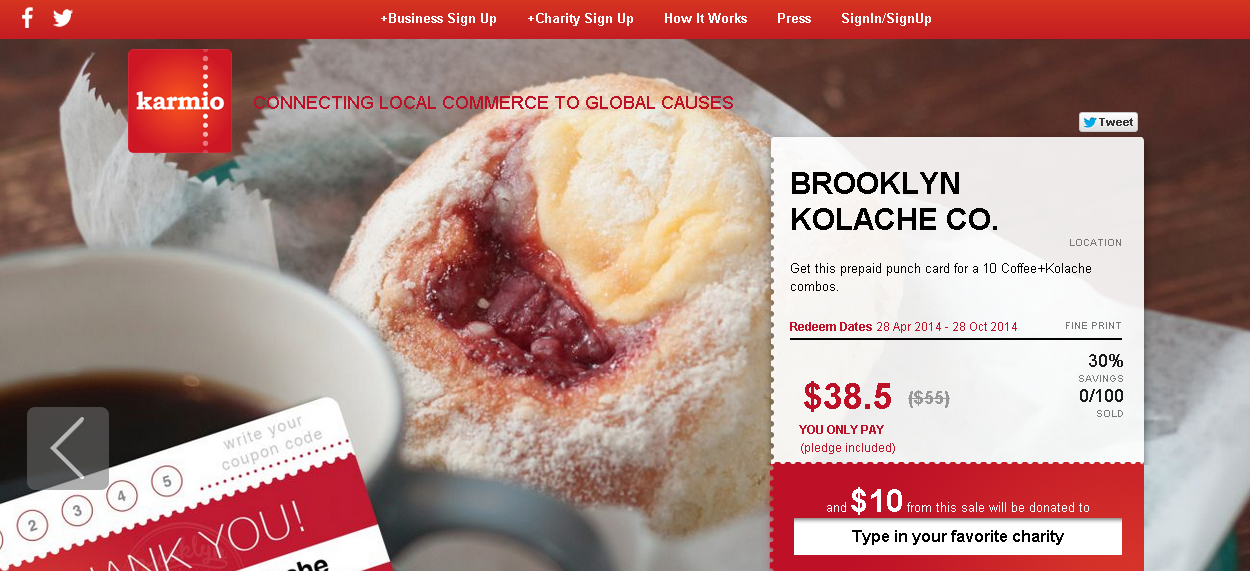Sibté Hassan was frustrated by the lack of accountability around donations to the people of Japan after the tsunami and subsequent meltdown in Fukushima. Where did the money go? Whom did it go to? How much was kept here? He didn’t know. He thought there must be a better way.
Moreover, as he went about a comfortable life here in New York City, he felt like there might be a way to connect the comforts of home with the needs of the world. That’s where the idea for Karm.io was born.
The site launched this past weekend, with four offers up, as of this writing.
Karm.io is a coupon site that works something like deals-site Groupon and LivingSocial. PlanetMoney did a compelling piece back in 2011 on why all coupon schemes die eventually, but the big deal sites haven’t tanked yet. Hassan believes that his company has some important differences that make its model more sustainable and that his competitors’ investors won’t let them try:
- A minimum of $10 of every deal bought on Karm.io goes to support a charitable organization.
- The site takes a much smaller cut of the total sale than its competitors do. Its intro rate is 5% but they expect to raise that to 10% eventually.
- Local businesses can pick their discount. If 50% off doesn’t work for them, they can go lower.
- The company isn’t going to do a daily newsletter or commit to new deals each day, in order to avoid the many irrelevant deals that lead members of other sites to cancel their memberships.
- Businesses can offer any number of coupons they want. Even a very small number.
We met Hassan at the Brooklyn Kolache Company, a Bed-Stuy coffee shop that sells its signature doughy baked goods, kolaches. The shop was one of the first to sign on with Karm.io, and its deal may illustrate one of the model’s challenges. You can get 10 mornings worth of coffee and kolache combos for $38.50 (a $55 value). Not a bad deal, and maybe you’ll use them, but a person could think to themselves, “Man, that’s a lot of dough.”
The minimum $10 donation requires a decently high sticker price that may not work well for businesses that thrive on lots of small transactions. That said, it may work better for services, such as this training session from Runstreet.
Karm.io has a team of four, though Hassan is the only person full time on it. Local developer, Raquel Bujans, who we profiled recently, helped with some of the development work. Hassan is funding the site with his own money, saying, “There’s bootstrapping and below that there’s flipflops and below that is barefoot. I’m barefoot,” he told Technically Brooklyn.
Hassan says he has a handful of other deals for the site in the works do build his Groupon competitor portfolio up, going live next week. He wants to create a mobile app for the site next. He’s also the organizer of the For Profit Social Impact Startups Meetup.







